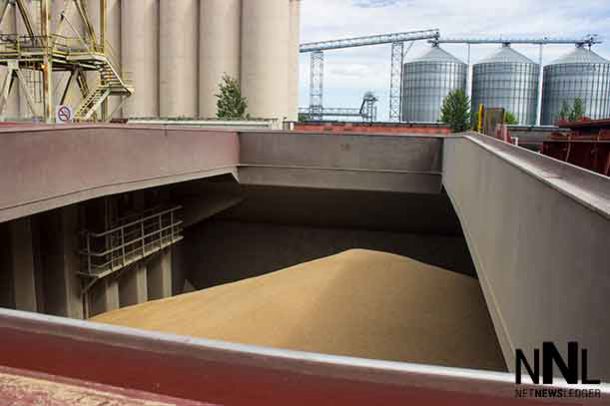

ST. JOHN’S, NL – AGRICULTURE – The agriculture and agri-food sector is a key growth industry in Canada, contributing over $100 billion annually to the economy and employing 2.3 million Canadians.
“The Canadian Agricultural Partnership sets the direction for the future of the sector to help it continue to innovate, grow and prosper, and position Canada as a leader in the global economy. Together with provinces and territories, I am committed to expanding business opportunities for our Canadian producers, ranchers and processors, and strengthening the middle class,” says Lawrence MacAulay, Minister of Agriculture and Agri-Food
“The Canadian Agricultural Partnership enables continued investment in strategic initiatives for agriculture and agri-food programming in Newfoundland and Labrador, and will have a significant impact on our rural communities and the provincial economy. The partnership will help our government achieve its goal of increasing food self-sufficiency to at least 20 per cent by 2022, and then building beyond that goal, as laid out in The Way Forward: Realizing Our Potential,” adds Steve Crocker, Minister of Fisheries and Land Resources.
Ministers of Agriculture reached agreement today on the key elements of a new federal, provincial, territorial (FPT) agricultural policy framework during the Annual Meeting of Federal, Provincial and Territorial Ministers of Agriculture held in St. John’s, Newfoundland and Labrador, from July 19-21.

The Canadian Agricultural Partnership, a five-year, $3 billion investment, will come into effect on April 1, 2018. It will strengthen the agriculture, agri-food and agri-based products sector, ensuring continued innovation, growth and prosperity. In addition, producers will continue to have access to a robust suite of Business Risk Management (BRM) programs.
The Canadian Agricultural Partnership will focus on six priority areas:
- Science, Research, and Innovation – Helping industry adopt practices to improve resiliency and productivity through research and innovation in key areas.
- Markets and Trade – Opening new markets and helping farmers and food processors improve their competitiveness through skills development, improved export capacity, underpinned by a strong and efficient regulatory system.
- Environmental Sustainability and Climate Change – Building sector capacity to mitigate agricultural greenhouse gas emissions, protect the environment and adapt to climate change by enhancing sustainable growth, while increasing production.
- Value-added Agriculture and Agri-food Processing – Supporting the continued growth of the value-added agriculture and agri-food processing sector.
- Public Trust – Building a firm foundation for public trust in the sector through improved assurance systems in food safety and plant and animal health, stronger traceability and effective regulations.
- Risk Management – Enabling proactive and effective risk management, mitigation and adaptation to facilitate a resilient sector by working to ensure programs are comprehensive, responsive and accessible.
Under the Canadian Agricultural Partnership, BRM programs will continue to help producers manage significant risks that threaten the viability of their farm and are beyond their capacity to manage. Governments responded to industry concerns regarding eligible coverage under AgriStability, ensuring a more equitable level of support for all producers. Highlights of upcoming BRM changes are available at http://www.agr.gc.ca/eng/?id=1500475317828.
Governments further committed to engaging in a review that explores options to improve BRM programming. The review will recognize the important role played by all programs (AgriStability, AgriInvest, AgriInsurance) in the risk management plans of producers given the diversity of the sector. The review will also directly involve producers and have an early focus on market risk, including as it relates to AgriStability addressing concerns regarding timeliness, simplicity and predictability. Ministers will be presented with options in July 2018 for consideration based on early findings of the review.
The agreement reached by ministers today sets the stage for FPT governments to conclude bilateral agreements by April 1, 2018. It is a priority for ministers to implement a seamless transition from the current policy framework to the Canadian Agricultural Partnership. Extensive consultations with industry and Canadians informed the development of the new agreement, which builds on the success of previous FPT agricultural frameworks. Governments will continue to work closely with the sector as Canadian Agricultural Partnership programs are developed and implemented, to reflect the diverse needs across Canada, including the North.
This year’s Annual Meeting of Federal, Provincial and Territorial Ministers of Agriculture focused on important initiatives touching the agriculture and agri-food sector including the status of trade negotiations and market access initiatives in key export markets. To this effect, FPT Ministers reiterated their support for supply management. Ministers agreed to the approach for optimizing the Pan-Canadian Regulatory Framework and endorsed the Plant and Animal Health Strategy for Canada. Indigenous agriculture in Canada and the development of a Food Policy for Canada were also addressed. A summary of items discussed at the meeting is available at http://www.agr.gc.ca/eng/?id=1500475666246. The next annual FPT Ministers’ meeting will be held in Vancouver, British Columbia, in July 2018.
Quick Facts
- Canadian farm incomes rose to $14.8 billion in 2016, the 2nd best year on record.
- In 2016, the total value of Canadian agriculture, agri-food and seafood exports reached an all-time high exceeding $62 billion.
- The food processing industry provides employment for a quarter of a million Canadians and is a major buyer of Canadian primary agriculture production.
*The Ministers from British Columbia and New Brunswick were not in attendance but were represented by officials.
